A lonely struggle
"I feel uncomfortable being called either 'Ms.' or 'Mr.'" says Rei at a support meeting in Kyoto.
"I feel I'm expected to be a woman when I dress as a woman, and be a man when I dress as a man," says Misane.
They are members of a support group for people who identify as non-binary, or X-gender as it is known in Japan.
The group meets several times a year to share their struggles and let off steam.
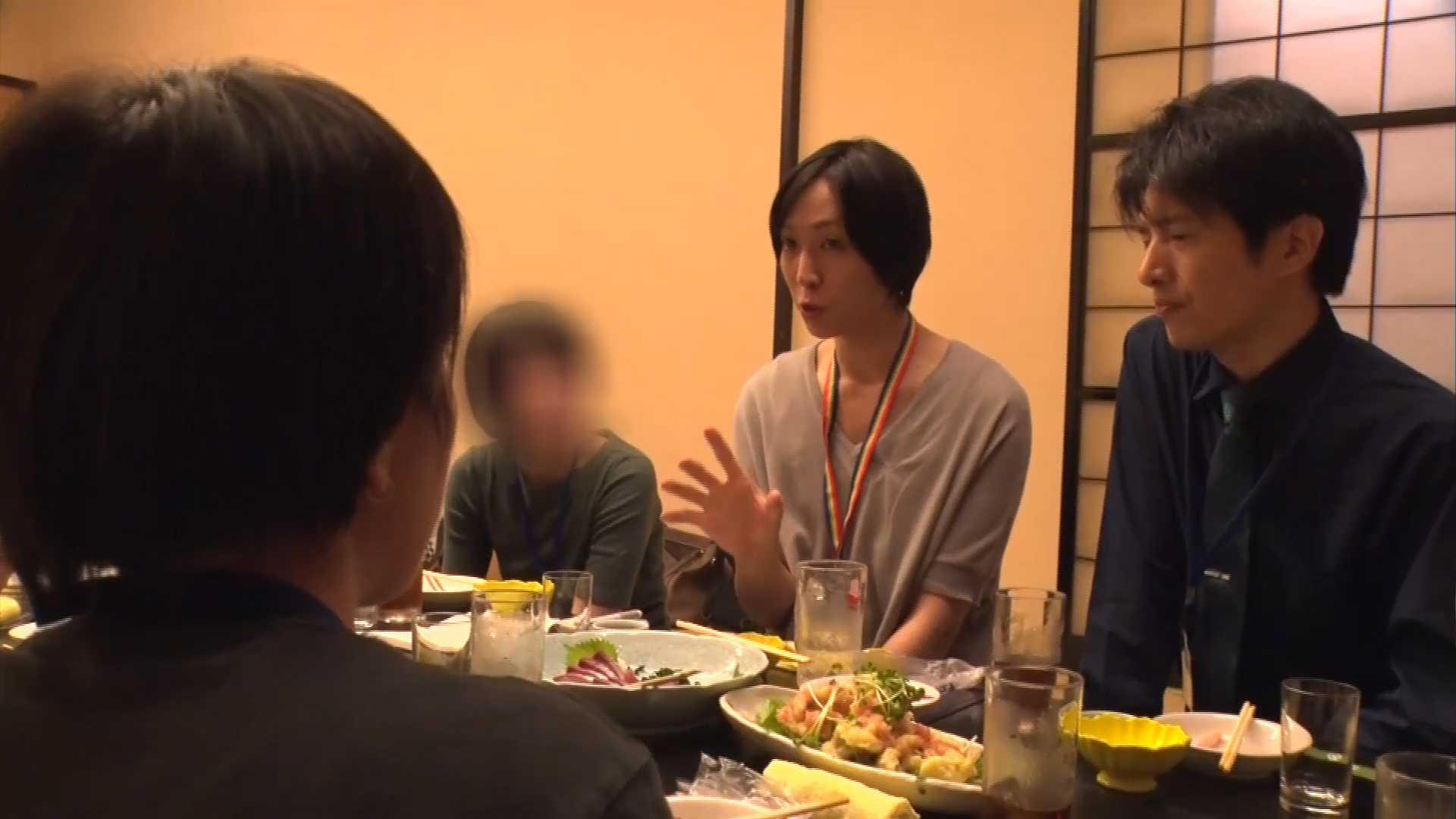
Kazuki Fujiwara, who organizes the meetings, says it means a lot to have a gathering where they can feel much less alone.
Fujiwara was designated male at birth but started to feel uneasy with that gender identity. Fujiwara still sometimes feels uncomfortable in typical male clothing and dresses like a woman in private. Coworkers see Fujiwara as male, and few of them know about the gender issue, which has created a feeling of being trapped behind an invisible barrier.
"I think there's some bias and a lack of understanding," says Fujiwara. "I often hope the world will become a place where we can live free from such bias, and understand each other better, overcome our differences."
A survey conducted by Tokyo's International Christian University found that X-gender people are almost twice as likely to suffer from depression or anxiety disorders as those who identify as male or female.
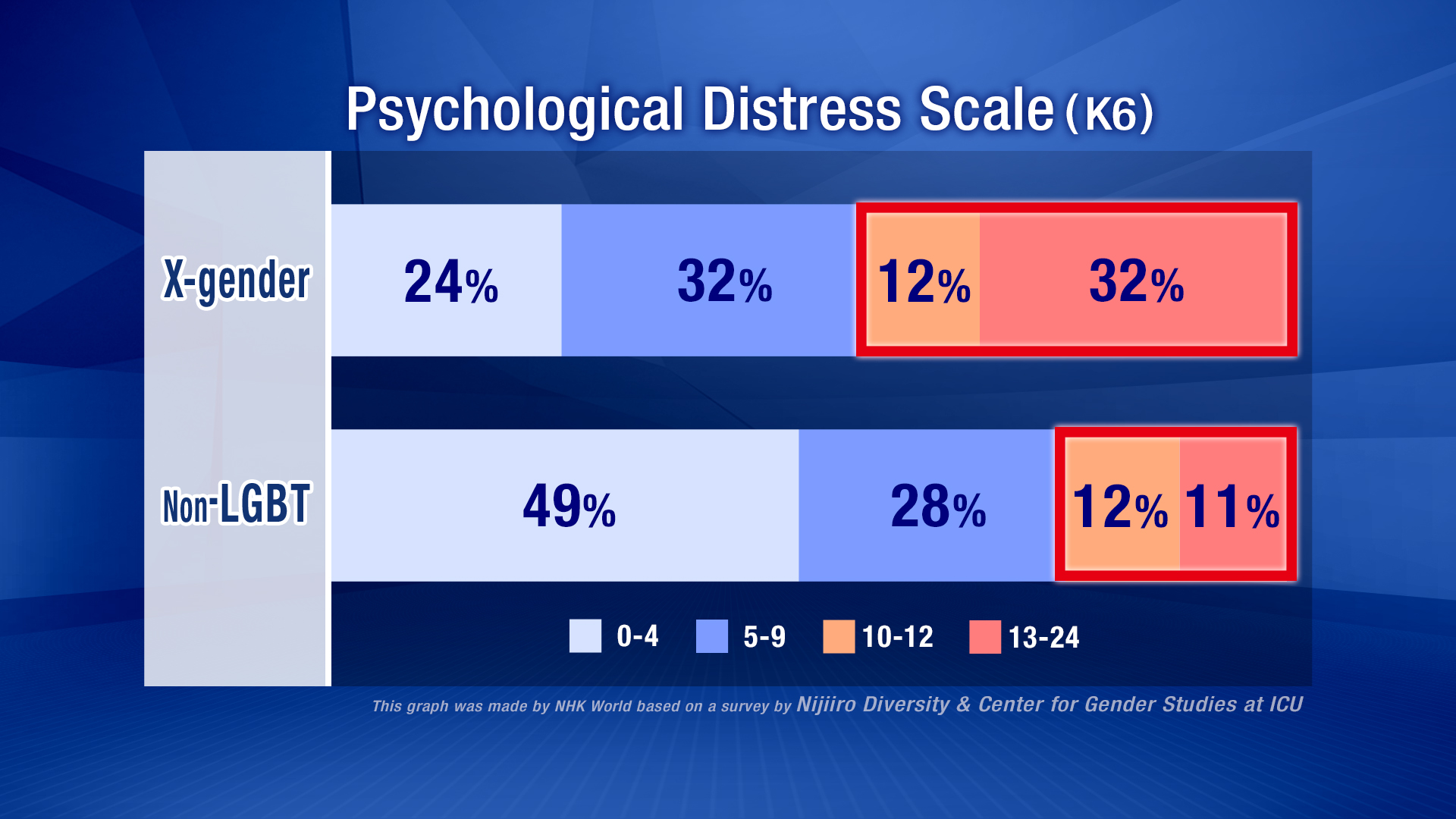
Sonja Dale researches gender issues at Tokyo's Hitotsubashi University. She says workplaces, schools and even family homes can be hostile places for X-gender people. People feel pressured to conform to gender norms, and may be subjected to abuse if they don't. Dale says many X-gender people consciously avoid working in offices where that kind of problem could arise, and that means they are limiting their employment options.
Third gender recognition around the world
The picture for third gender people is a little brighter in some places.
At least 9 countries, including Canada, India and Australia, now have an option for non-binary gender on legal documents.
Activist Gemma Hickey was instrumental in getting the rules changed in Canada. Raised as a female, but feeling uneasy about it since childhood, Hickey says the stress was so great it led to a suicide attempt.
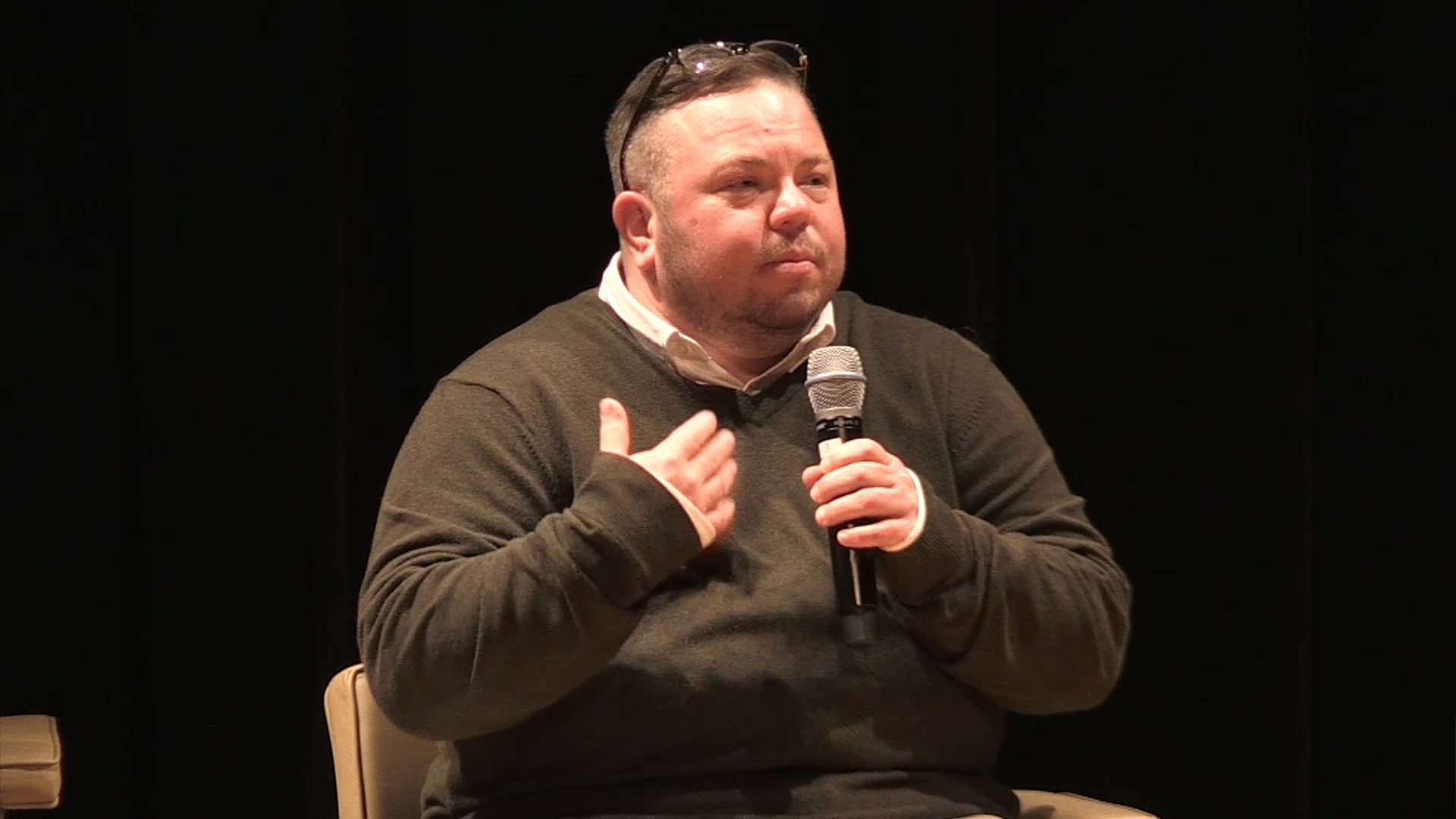
At the age of 38, Hickey started the gender reassignment process, and underwent a mastectomy.
"Having that experience of living as a woman, I didn’t want to let that side of me go. Nor did I want to change my name to a more masculine name. I’ve always been masculine but I’ve never really exclusively identified as a man. That’s why I felt the non-binary label was a fit for me."
Hickey, who uses the pronoun 'they', wanted to be legally recognized as "non-binary," and took the fight as far as the Supreme Court. In
2017, they became the first Canadian to get an "X" for gender on their birth certificate. The same designation is now also used on their driver's license and passport.
"For me, in terms of my identity and how I myself it was certainly a very big moment in my life," Hickey says.
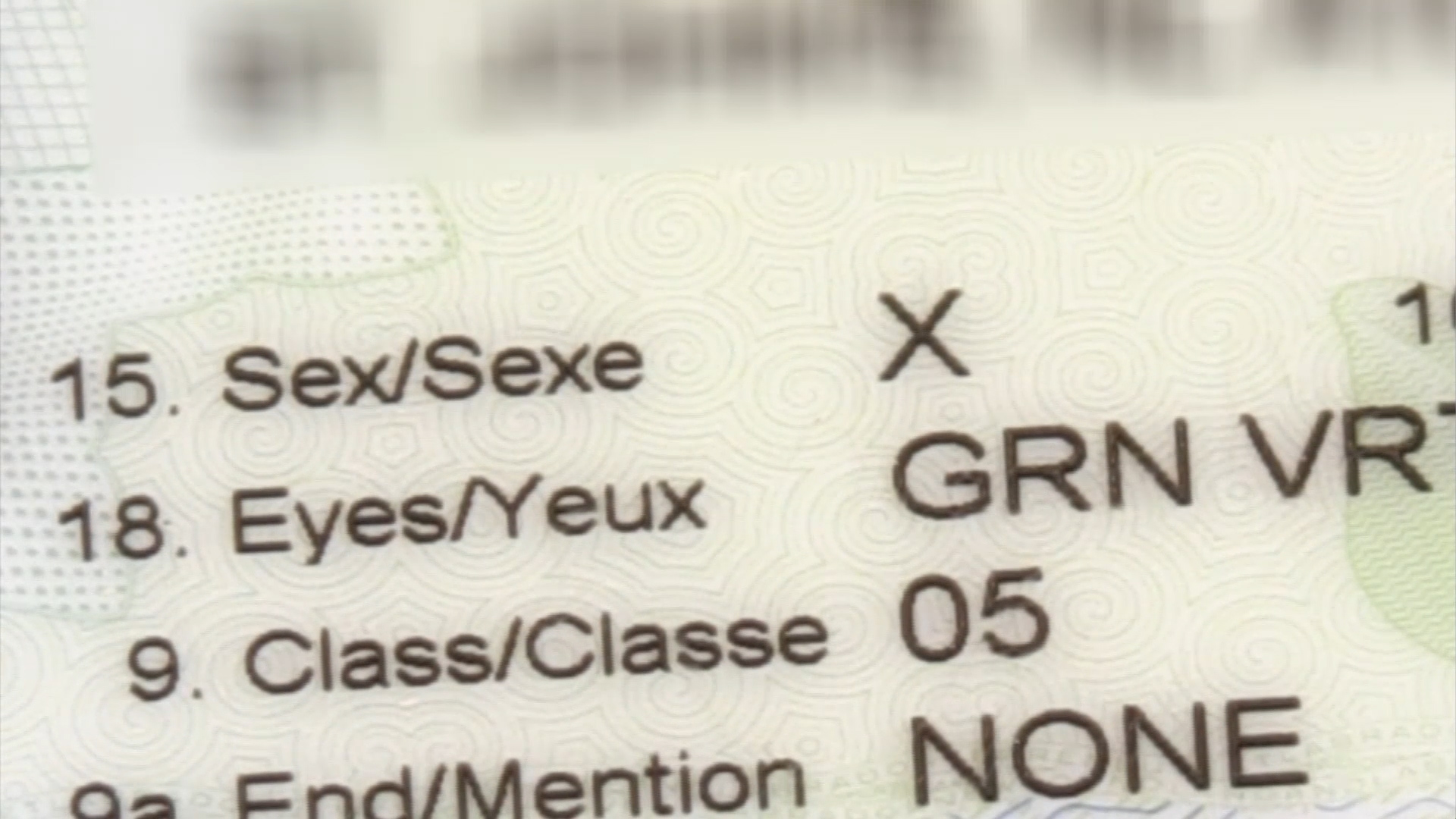
Their story is the subject of the documentary "Just Be Gemma". It is a tale of suffering, but also of overcoming harassment and abuse to achieve a legal landmark.
Signs of X-gender recognition in Japan
In Japan, progress has been slow, but this year has seen a great leap forward. Fujiwara lobbied officials in Yokosuka City to recognize partnerships between people of "any gender"... including X. In April the city introduced new partnership guidelines that have no section for gender, but clearly state that X-gender people can apply.
When Takako Kakiuchi and Miwa Watanabe heard the news, they packed up their lives and moved to the city. Kakiuchi identifies as X-gender, and Watanabe is a lesbian. Within two weeks a city official was handing them a certificate to officially recognize them as partners. "Having official documents gives me a sense of security," says Kakiuchi. "I don't think I want anything special... just the same rights as others," says Watanabe.
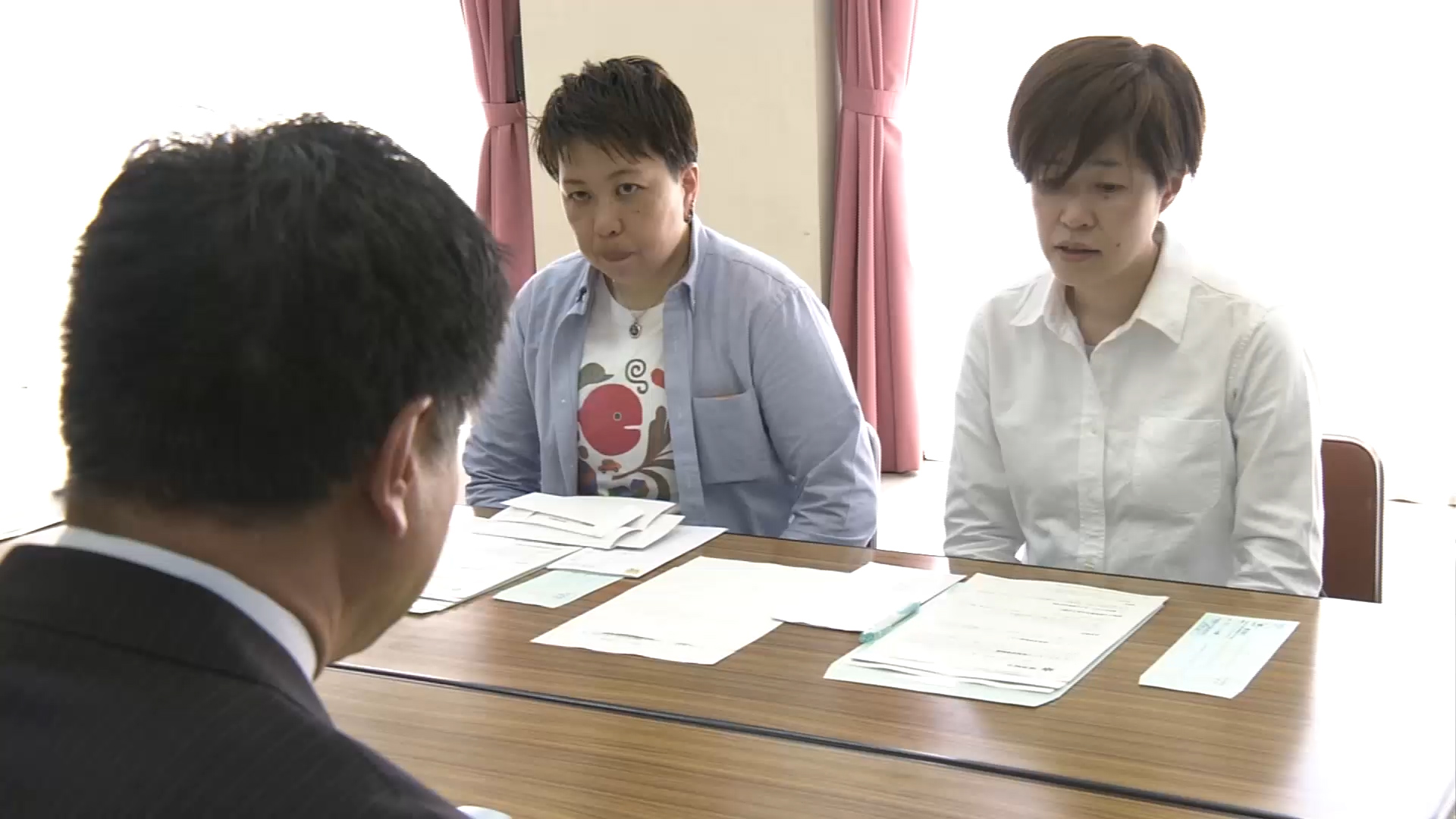
Fujiwara was there for the historic moment, and sounded optimistic about the future, saying "I believe life will become easier for men, women, X-gender and people with other sexualities if we acknowledge that there are different genders and ways of living, without criticizing each other too much."


